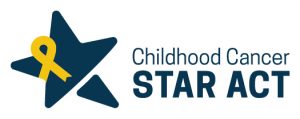Community News–Update on Federal Childhood Cancer Appropriations Process
Update from our colleagues at the Alliance for Childhood Cancer (July 28, 2022):
The Senate Appropriations Committee included language to fund the Childhood Cancer STAR Act and the Childhood Cancer Data Initiative fully again this year in its Fiscal Year 2023 Labor-HHS Appropriations bill. In addition, the FY23 Defense Appropriations bill included many topics related to childhood and AYA cancer research and maintained level funding at $130 million for the Peer Reviewed Cancer Research Program.

This step is important to our requests being included in the final appropriations package when Congress considers the next budget.
Here are some key sections related to childhood cancer:
Labor-HHS Report Language
Childhood Cancer STAR Act—The Committee includes $30,000,000, the same as the fiscal year 2022 enacted level, for continued implementation of the Childhood Cancer Survivorship, Treatment, Access, and Research [STAR] Act to expand existing biorepositories for childhood cancer patients enrolled in NCI-sponsored clinical trials to collect and maintain relevant clinical, biological, and demographic information on all children, adolescents, and young adults with cancer. The Committee has also included sufficient funding to carry out childhood cancer survivorship research and programs as authorized in the STAR Act, such as supporting research to inform best practices for the treatment of late effects of childhood cancers, research to improve collaboration among providers so that doctors are better able to care for this population as they age, and creating innovative models of care for childhood cancer survivors. The Committee recognizes NCI’s efforts to expand new and innovative research efforts to advance progress for children with cancer, including the Pediatric MATCH precision medicine trial and a pediatric immunotherapy translational science network, as well as NCI’s long-standing support for the Children’s Oncology Group, the Childhood Cancer Survivor Study, the Pediatric Preclinical Testing Consortium, and several other critical programs. The Committee also commends NIH for its efforts to coordinate pediatric research across its Institutes and Centers through the recently established Trans-NIH Pediatric Research Consortium. The Committee understands NCI participates in the Consortium, and that childhood cancer research is an important part of the pediatric research portfolio across NIH. The Committee requests an update in the fiscal year 2024 CJ on opportunities to enhance childhood cancer research efforts, including coordination efforts already underway through the Trans-NIH Pediatric Research Consortium. The Committee recognizes that the STAR Act calls on NCI to ensure that all applicable study sections, committees, advisory groups, and panels at the NCI include one or more qualified pediatric oncologists, as appropriate. The Committee requests an update on the actions NCI has taken to ensure pediatric cancer expertise is included on all panels, as appropriate.
Childhood Cancer Data Initiative [CCDI]—The Committee includes the full budget request of $50,000,000 for the CCDI, the same level as in fiscal year 2022. Within this total, the Committee includes funding to continue to support enhancement of the CCDI Molecular Characterization Initiative and other efforts as applicable through continued expansion to focus on ultra-rare tumor types, such as atypical teratoid rhabdoid tumor, and other ultra-rare pediatric tumor types with limited therapeutic options. The effort should include comprehensive clinical and molecular data for each patient to the extent possible. The dataset should include clinical, radiographic, histopathologic, and molecular information to the extent possible and be stored in a manner that allows for interrogation of patient level data. The data collected will be used to identify risk factors, aid in prognostication and treatment recommendations, and assist with the development of novel therapeutics for these diseases.
Childhood Cancer Research Coordination—The Committee commends NIH for its efforts to coordinate pediatric research across its Institutes and Centers through the recently established Trans-NIH Pediatric Research Consortium. The Committee understands NCI participates in the Consortium, and that childhood cancer research is an important part of the pediatric research portfolio across NIH. The Committee requests an update in the fiscal year 2024 CJ on opportunities to enhance childhood cancer research efforts, including coordination efforts already underway through the Trans-NIH Pediatric Research Consortium.
Gabriella Miller Kids First Research Act–The Committee recommendation includes $2,991,665,000 for the Office of the Director [OD]. Within this total, $707,401,000 is provided for the Common Fund and $12,600,000 is included for the Gabriella Miller Kids First Research Act (Public Law 113–94).
Defense Report Language
The funds provided in the peer-reviewed cancer research program are directed to be used to conduct research in the following areas: bladder cancer; blood cancers; brain cancer; endometrial cancer; esophageal cancer; colorectal cancer; kidney cancer; liver cancer; lung cancer; lymphoma; mesothelioma; metastatic cancer; myeloma; neuroblastoma; pancreatic cancer; pediatric brain tumors; pediatric, adolescent, and young adult cancers; stomach cancer; and Von Hippel-Lindau syndrome.
Categories
- Blog Posts (125)
- Explainer Post (12)
- Guest Blogs (34)
- Member Blogs (44)
- Survivorship Matters Blog (9)
- CAC2 News (23)
- Collaborative Achievements (15)
- Community News (277)
- In Memoriam (2)
- News Digest (226)
- Webinars (66)
Tags
Recent Posts
- CAC2 Childhood Cancer Community News Digest (April 28-May 4)
- CAC2 Webinar–“Patient Advocacy, Non-Profit Foundations, and the Changing Landscape of Pediatric Cancer Funding”
- Guest Blog–Applications Open: 2025 HBF Inspiration Award for Early Career Investigators in Pediatric Brain Cancer
- CAC2 Childhood Cancer Community News Digest (April 21-27)
- CAC2 Childhood Cancer Community News Digest (April 14-20)